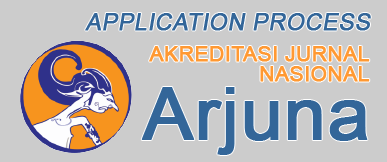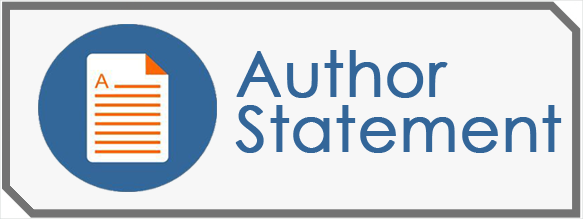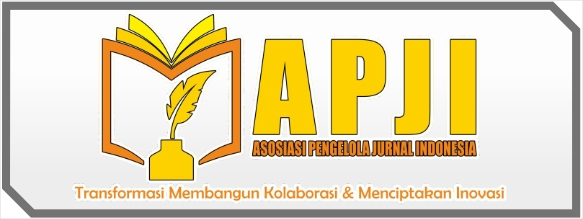Mobile-Based Marketing Innovation as an Effort to Increase Tourist Interaction and Engagement in the Tourism Industry
DOI:
https://doi.org/10.62394/scientia.v3i2.145Kata Kunci:
mobile marketing, traveler interaction, tourism industry, digital engagementAbstrak
This research aims to evaluate the influence of mobile-based marketing strategies on tourists' interaction with digital platforms in the tourism industry through a Systematic Literature Review (SLR) approach. The research process involved selecting literature from various academic databases, such as Google Scholar, Scopus, and DOAJ, with the keywords “mobile marketing,” “tourist interaction,” and “tourism” in the period 2014-2024. The research findings show that mobile technology significantly strengthens travelers' engagement with digital marketing tools, eases information access, and enhances a more personalized travel experience. Despite challenges related to data privacy and technological disruption, these strategies provide a competitive advantage for tourism destinations. This research also highlights the gaps in the application of mobile-based marketing in certain demographic segments, and the need for further research to formulate strategies that are inclusive and sustainable. Future research should focus on integrating digital marketing with traditional methods to create more meaningful and relevant tourism interactions.
Unduhan
Referensi
Alnajim, R. A., & Fakieh, B. (2023). A Tourist-Based Framework for Developing Digital Marketing for Small and Medium-Sized Enterprises in the Tourism Sector in Saudi Arabia. Data. https://doi.org/10.3390/data8120179
Ana, M.-I., & Istudor, L.-G. (2019). The Role of Social Media and User-Generated-Content in Millennials’ Travel Behavior. Management Dynamics in the Knowledge Economy, 7(1), 87–104. https://doi.org/10.25019/mdke/7.1.05
Armutcu, B., Tan, A., Amponsah, M., Parida, S., & Ramkissoon, H. (2023). Tourist behaviour: The role of digital marketing and social media. Acta Psychologica. https://doi.org/10.1016/j.actpsy.2023.104025
Baishya, K., & Samalia, H. V. (2020). Extending unified theory of acceptance and use of technology with perceived monetary value for smartphone adoption at the bottom of the pyramid. International Journal of Information Management. https://doi.org/10.1016/j.ijinfomgt.2019.11.004
Basaza, M. (2016). FACTORS AFFECTING THE PERFORMANCE OF EMPLOYEES AT THE MINISTRY OF HEALTH HEADQUARTERS IN KAMPALA, UGANDA. Journal of Knowledge Management.
Bonacini, E., & Giaccone, S. C. (2022). Gamification and cultural institutions in cultural heritage promotion: a successful example from Italy. Cultural Trends. https://doi.org/10.1080/09548963.2021.1910490
Buhalis, D., Harwood, T., Bogicevic, V., Viglia, G., Beldona, S., & Hofacker, C. (2019). Technological disruptions in services: lessons from tourism and hospitality. Journal of Service Management. https://doi.org/10.1108/JOSM-12-2018-0398
Çinar, K. (2020). Role of Mobile Technology for Tourism Development. In The Emerald Handbook of ICT in Tourism and Hospitality. https://doi.org/10.1108/978-1-83982-688-720201017
Czinkota, M. R., Kotabe, M., Vrontis, D., & Shams, S. M. R. (2021). Market Segmentation, Positioning, and Branding. https://doi.org/10.1007/978-3-030-66916-4_7
Dorcic, J., Komsic, J., & Markovic, S. (2019). Mobile technologies and applications towards smart tourism – state of the art. In Tourism Review. https://doi.org/10.1108/TR-07-2017-0121
Drigas, A., Dede, D. E., & Dedes, S. (2020). Mobile and other applications for mental imagery to improve learning disabilities and mental health. International Journal of Computer ….
El Archi, Y., Benbba, B., Zhu, K., El Andaloussi, Z., Pataki, L., & Dávid, L. D. (2023). Mapping the Nexus between Sustainability and Digitalization in Tourist Destinations: A Bibliometric Analysis. Sustainability (Switzerland). https://doi.org/10.3390/su15129717
Ettema, D. (2018). Apps, activities and travel: an conceptual exploration based on activity theory. Transportation. https://doi.org/10.1007/s11116-017-9844-5
Fuaddah, Z., Dwi, I., Nurhaeni, A., & Rahmanto, ; Andre. (2022). Digital Marketing and Electronic Word of Mouth (eWOM) Tourism Post COVID-19. International Journal of Multicultural and Multireligious Understanding.
Fudholi, D. H., Rani, S., Arifin, D. M., & Satyatama, M. R. (2021). Deep Learning-based Mobile Tourism Recommender System. Scientific Journal of Informatics. https://doi.org/10.15294/sji.v8i1.29262
Gamage, T. C. (2021). Book Review: Tourism, Hospitality and Digital Transformation edited by Tajeddini, K., Ratten, V. and Merkle, T. (Routledge; 1st Edition (2019); Pages: 242). South Asian Journal of Tourism and Hospitality. https://doi.org/10.4038/sajth.v1i1.33
Gao, Z., Cheah, J. H., Lim, X. J., Ng, S. I., Cham, T. H., & Yee, C. L. (2024). Can travel apps improve tourists’ intentions? Investigating the drivers of Chinese gen Y users’ experience. Journal of Vacation Marketing. https://doi.org/10.1177/13567667231152938
Giraldo, D. (2016). Desarrollo de una barra tipo granola a base de harina de grillo Acheta domesticus como principal fuente proteica. Universidad De La Salle Facultad De Ingeniería Programa De Ingeniería De Alimentos Desarrollo.
Guo, Y., Peeta, S., Agrawal, S., & Benedyk, I. (2022). Impacts of Pokémon GO on route and mode choice decisions: exploring the potential for integrating augmented reality, gamification, and social components in mobile apps to influence travel decisions. Transportation. https://doi.org/10.1007/s11116-021-10181-9
Gvaramadze, A. (2022). Digital Technologies and Social Media in Tourism. European Scientific Journal, ESJ. https://doi.org/10.19044/esj.2022.v18n10p28
Heliany, I. (2019). Wonderful Digital Tourism Indonesia Dan Peran Revolusi Industri Dalam Menghadapi Era Ekonomi Digital 5.0. Destinesia : Jurnal Hospitaliti Dan Pariwisata. https://doi.org/10.31334/jd.v1i1.551
Hili, G. (2024). The Value of the Traditional Travel Agency in the Digital Age in Malta BA in International Hospitality.
Huy, D. T. N., Hang, N. T., Thang, T. D., Thuy, P. T., & Thuy, V. X. (2021). Virtual Reality Technology and Simulation Technology to Development of Smart Travelling in the Time of Industrial Revolution 4.0. Webology. https://doi.org/10.14704/WEB/V18SI05/WEB18237
Iswanto, D., Amol, F., Sangadji, S. S., & Halawa, F. (2024). Pengaruh Penggunaan Teknologi Dalam Pemasaran Pariwisata Selama Masa Pandemi Covid-19 Di Indonesia. Journal of Management: Small and Medium Enterprises (SMEs), 17(1), 83–91.
Iswanto, D., Handriana, T., Rony, A. H. N., & Sangadji, S. S. (2024). Influencers in Tourism Digital Marketing: A Comprehensive Literature Review. International Journal of Sustainable Development and Planning, 19(2), 739–749. https://doi.org/10.18280/ijsdp.190231
Jang, S., & Kim, J. (2022). Enhancing exercise visitors’ behavioral engagement through gamified experiences: A spatial approach. Tourism Management. https://doi.org/10.1016/j.tourman.2022.104576
Jimenez, M. N. (2019). PROPIEDADES MECANICAS DE SUELOS PARCIALMENTE SATURADOS. In Sustainability (Switzerland).
Kamboj, S., Rana, S., & Drave, V. A. (2020). Factors driving consumer engagement and intentions with gamification of mobile apps. Journal of Electronic Commerce in Organizations. https://doi.org/10.4018/JECO.2020040102
Kim, D., & Kim, S. (2017). The role of mobile technology in tourism: Patents, articles, news, and mobile tour app reviews. Sustainability (Switzerland). https://doi.org/10.3390/su9112082
Kuo, T. S., Huang, K. C., Nguyen, T. Q., & Nguyen, P. H. (2019). Adoption of mobile applications for identifying tourism destinations by travellers: An integrative approach. Journal of Business Economics and Management. https://doi.org/10.3846/jbem.2019.10448
Lalicic, L., & Weismayer, C. (2018). Being passionate about the mobile while travelling. Current Issues in Tourism. https://doi.org/10.1080/13683500.2016.1141179
Lei, S. S. I., Chan, I. C. C., Tang, J., & Ye, S. (2022). Will tourists take mobile travel advice? Examining the personalization-privacy paradox. Journal of Hospitality and Tourism Management. https://doi.org/10.1016/j.jhtm.2022.02.007
Lopez-Carreiro, I., Monzon, A., Lopez, E., & Lopez-Lambas, M. E. (2020). Urban mobility in the digital era: An exploration of travellers’ expectations of MaaS mobile-technologies. Technology in Society. https://doi.org/10.1016/j.techsoc.2020.101392
Loureiro, A. (2018). There is a fourth industrial revolution: the digital revolution. Worldwide Hospitality and Tourism Themes. https://doi.org/10.1108/WHATT-07-2018-0044
Lowatcharin, G. (2016). Centralized and Decentralized Police Systems: A Cross-National Mixed-Methods Study of the Effect of Policing Structures with Lessons for Thailand. Journal of Knowledge Management.
Mallick, S. U. (2023). PROMOTING TOURISM THROUGH DIGITAL MARKETING. The American Journal of Management and Economics Innovations. https://doi.org/10.37547/tajmei/volume05issue10-06
Marchesani, F., Masciarelli, F., & Ceci, F. (2024). Digital trajectories in contemporary cities: Exploring the interplay between digital technology implementation, the amplitude of social media platforms, and tourists inflow in cities. Cities. https://doi.org/10.1016/j.cities.2023.104749
Matusse, S. S., Xi, X., & Joaquim, I. M. (2023). Assessment of strategies to enhance the online presence of the Mozambican government website on tourism destination marketing. International Trade, Politics and Development. https://doi.org/10.1108/itpd-07-2022-0012
Missaoui, S., Kassem, F., Viviani, M., Agostini, A., Faiz, R., & Pasi, G. (2019). LOOKER: a mobile, personalized recommender system in the tourism domain based on social media user-generated content. Personal and Ubiquitous Computing. https://doi.org/10.1007/s00779-018-01194-w
Not, E. (2021). Mining mobile application usage data to understand travel planning for attending a large event. Information Technology and Tourism. https://doi.org/10.1007/s40558-021-00204-7
O’Connor, S., & Andrews, T. (2018). Smartphones and mobile applications (apps) in clinical nursing education: A student perspective. Nurse Education Today. https://doi.org/10.1016/j.nedt.2018.07.013
Papadakis, S., & Orfanakis, V. (2017). The Combined Use of Lego Mindstorms NXT and App Inventor for Teaching Novice Programmers BT - Educational Robotics in the Makers Era. International Conference EduRobotics 2016.
Parapanos, D., & Michopoulou, E. (2023). Innovative Mobile Technology in Hotels and the Use of Gamification. Tourism Planning and Development. https://doi.org/10.1080/21568316.2022.2107563
Paschmann, J., Völckner, F., Bruno, H., Van Heerde, H., & Klein, K. (2022). Driving Mobile App User Engagement through Gamification. SSRN Electronic Journal. https://doi.org/10.2139/ssrn.4286765
Pencarelli, T. (2020). The digital revolution in the travel and tourism industry. Information Technology & Tourism, 22(3), 455–476.
Prandi, C., Melis, A., Prandini, M., Delnevo, G., Monti, L., Mirri, S., & Salomoni, P. (2019). Gamifying cultural experiences across the urban environment. Multimedia Tools and Applications. https://doi.org/10.1007/s11042-018-6513-4
Rafa’al, M., & Sangadji, S. S. (2023). Digital Transformation of the Hotel Industry “Theories, Practices, and Global Challenges.” Journal of Hospitality and Tourism Management, 56, 469–470. https://doi.org/10.1016/j.jhtm.2023.08.002
Ravishankar, B., & Christopher, P. B. (2020). Impact of innovative services on customer satisfaction and enhancing tourism: Airline and hotel services from tourist perspective. In Journal of Critical Reviews. https://doi.org/10.31838/jcr.07.11.126
Sakas, D. P., Reklitis, D. P., Terzi, M. C., & Vassilakis, C. (2022). Multichannel Digital Marketing Optimizations through Big Data Analytics in the Tourism and Hospitality Industry. Journal of Theoretical and Applied Electronic Commerce Research, 17(4), 1383–1408. https://doi.org/10.3390/jtaer17040070
Sangadi, S. S., & Handriana, T. (2023). The role of pleasure to improve tourism education (Edited By Alejandra Zuccoli, Maximiliano E. Korstanje), ISBN: 978-3-031-21580-3. Book Link: https://link. springer. com/book/10.1007/978-3-031-21580-3. Elsevier.
Schlosser, R., & Chenavaz, R. Y. (2023). Joint dynamic pricing and marketing-mix strategies for revenue management applications with stochastic demand. International Transactions in Operational Research. https://doi.org/10.1111/itor.13352
Serdar, D. (2019). No 主観的健康感を中心とした在宅高齢者における 健康関連指標に関する共分散構造分析Title. Sustainability (Switzerland).
Seyfi, S., Hall, C. M., Saarinen, J., & Vo-Thanh, T. (2023). Understanding drivers and barriers affecting tourists’ engagement in digitally mediated pro-sustainability boycotts. Journal of Sustainable Tourism. https://doi.org/10.1080/09669582.2021.2013489
Starĉević, S., & Konjikušić, S. (2018). Why Millenials As Digital Travelers Transformed Marketing Strategy In Tourism Industry. International Thematic Monograph Tourism in Function of Development of the Republic of Serbia.
TOPSAKAL, Y., & DİNÇ, A. (2022). Çevrimdışı Tatil: Dijital Detoks İçin Ekoturizm TT - Offline Vacation: Ecotourism for Digital Detox. Journal of Tourism Intelligence and Smartness.
Vaportzis, E., Clausen, M. G., & Gow, A. J. (2017). Older adults perceptions of technology and barriers to interacting with tablet computers: A focus group study. Frontiers in Psychology. https://doi.org/10.3389/fpsyg.2017.01687
Verhun, A., Buntova, N., Boretska, N., Borysova, O., & Shevchuk, S. (2022). Digital Tools for the Development of the Hospitality and Tourism Industry in the Context of a Digitized Economy. Economic Affairs (New Delhi). https://doi.org/10.46852/0424-2513.4s.2022.20
Wang, T. Y., & Park, J. (2023). Destination Information Search in Social Media and Travel Intention of Generation Z University Students. Journal of China Tourism Research. https://doi.org/10.1080/19388160.2022.2101574
Yelderman, L. A. (2016). Retribution through Punitiveness: The Effects of Temporal Contiguity, Attributions of Vicarious Responsibility, Emotion, and Blame on Mock Parole Decisions and Public Perceptions. Journal of Knowledge Management.
Yu, Z., Feng, Y., Xu, H., & Zhou, X. (2014). Recommending travel packages based on mobile crowdsourced data. IEEE Communications Magazine. https://doi.org/10.1109/MCOM.2014.6871670
Yuwana, A. F. (2021). Hubungan Durasi Penggunaan Smartphone Sebelum Tidur Malam Dengan Gejala Insomnia Pada Mahasiswa Program Studi Pendidikan Dokter (Pspd) Uin Maulana Malik Ibrahim Malang. Frontiers in Neuroscience.





















